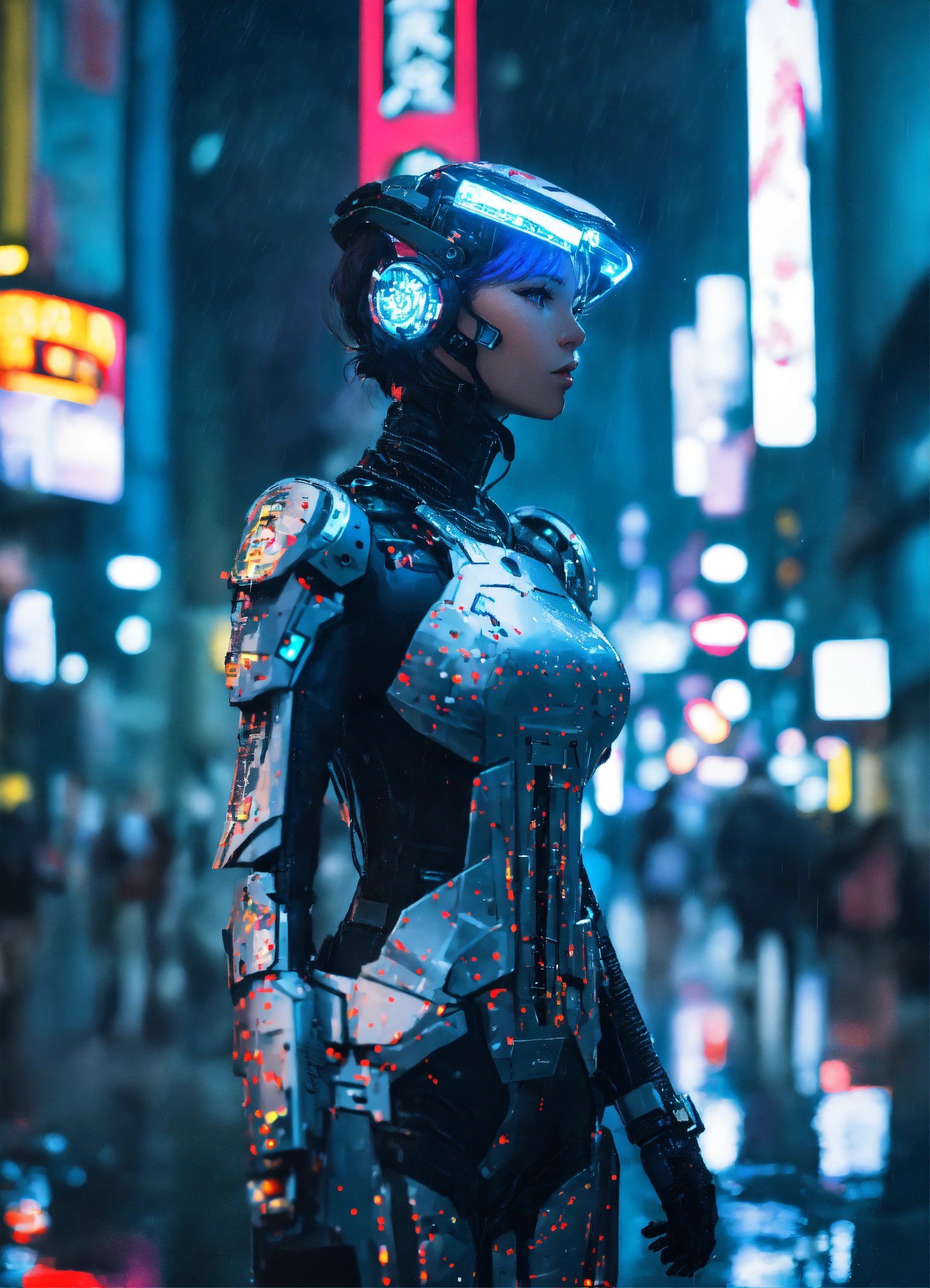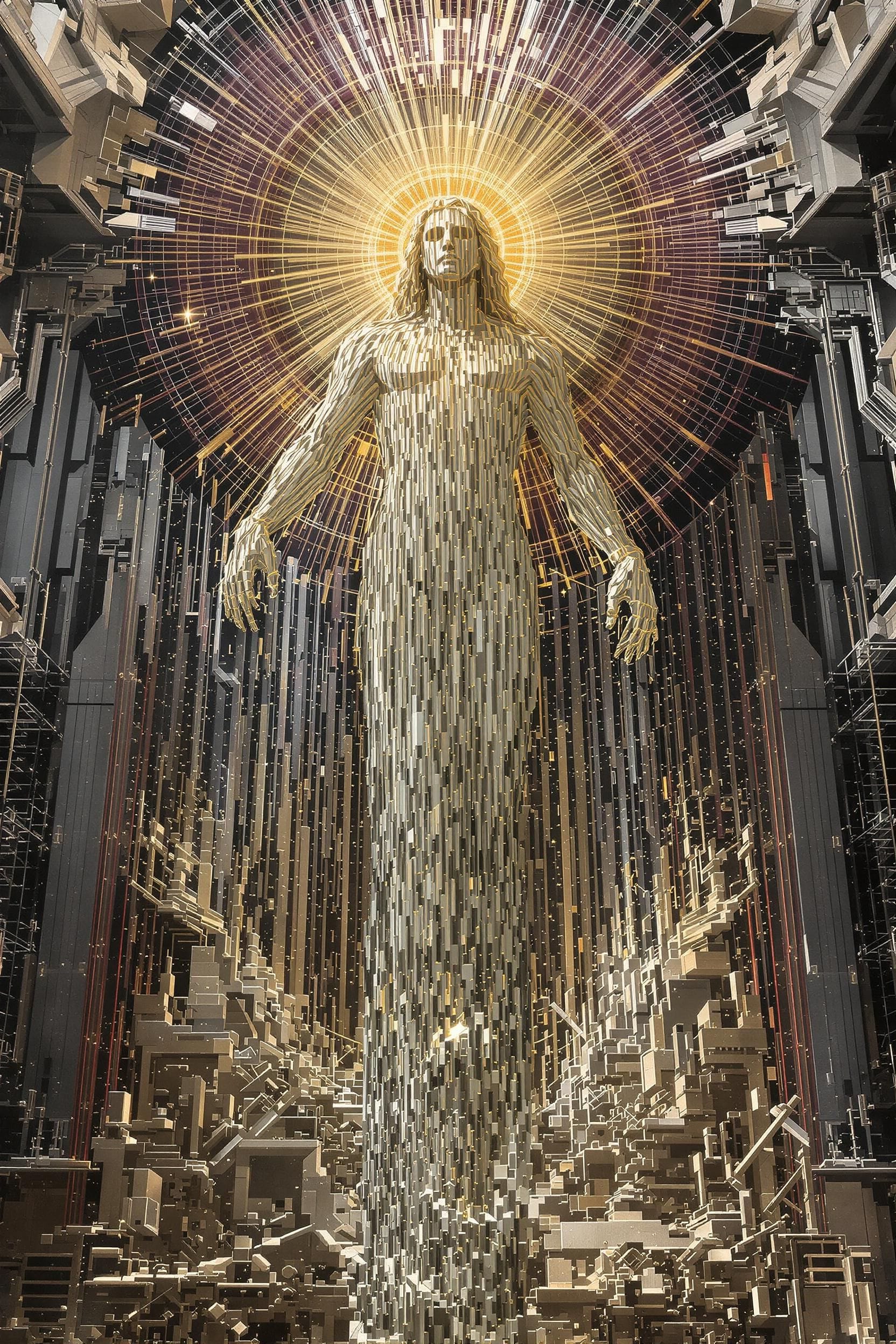The Godfather of Modern AI, Mr. Mohan fears that his latest AI Virtual Robot Teachers could take over the world of teaching forever!
With his latest creation, the AI Virtual Robot Teachers, Mr. Shankar aims to transform the way we learn and teach.

Overview
Introduction to Mr. Mohan Leela Shankar's Inventions
Mr. Mohan Leela Shankar, widely regarded as the Godfather of Modern AI, has been at the forefront of revolutionizing the field of education with his groundbreaking advancements in Artificial Intelligence (AI). With his latest creation, the AI Virtual Robot Teachers, Mr. Shankar aims to transform the way we learn and teach.
These virtual teachers have the potential to revolutionize education by providing personalized and adaptable learning experiences, available 24/7. However, along with the numerous advantages, there are also concerns and challenges that need to be addressed to ensure a balanced approach to integrating AI into education.

The Rise of AI in Education
AI has made significant advancements in various fields, and education is no exception. With the rise of AI in education, there has been a paradigm shift in the way teaching and learning are approached. AI virtual robot teachers have emerged as a revolutionary tool that has the potential to transform the education landscape. These virtual teachers are equipped with advanced algorithms and machine-learning capabilities that enable them to provide personalized and adaptive learning experiences to students. They can analyze vast amounts of data and tailor their teaching methods to cater to the unique needs of each student.
Furthermore, AI virtual robot teachers offer 24/7 availability and accessibility, allowing students to learn at their own pace and convenience. This technology also ensures efficient and consistent teaching methods, eliminating the inconsistencies that can arise with human teachers. As AI continues to advance, the role of AI virtual robot teachers in education is expected to grow, bringing both advantages and challenges.
The Potential Impact of AI Virtual Robot Teachers
AI Virtual Robot Teachers have the potential to revolutionize the field of education. With their improved personalization and adaptability, they can cater to the individual needs of each student, ensuring a more effective learning experience. Moreover, their 24/7 availability and accessibility means that students can access educational resources and support at any time, regardless of their location.
Additionally, AI Virtual Robot Teachers can provide efficient and consistent teaching methods, ensuring that all students receive the same quality of education. However, there are also concerns regarding the loss of human connection and emotional support that human teachers provide, as well as the ethical considerations and bias that may arise from relying solely on AI.
Furthermore, the potential job displacement and economic implications of AI Virtual Robot Teachers in the teaching profession need to be carefully considered. Despite these challenges, it is important to find a balance between the benefits and risks of AI Virtual Robot Teachers to shape the future of education in the AI era.
Advantages of AI Virtual Robot Teachers
Improved Personalization and Adaptability
AI Virtual Robot Teachers offer improved personalization and adaptability in education. These virtual teachers can analyze individual student needs and provide tailored learning experiences. They can adapt their teaching methods based on the student's learning style and pace, ensuring optimal understanding and engagement.
Also, AI virtual teachers can continuously monitor student progress and provide real-time feedback, enabling timely intervention and support. This level of personalization and adaptability enhances the effectiveness of education and promotes student success.
24/7 Availability and Accessibility
One of the key advantages of AI Virtual Robot Teachers is their 24/7 availability and accessibility. Unlike human teachers who have limited working hours, AI virtual robot teachers can be available round the clock, providing students with the flexibility to learn at their own pace and convenience. This accessibility ensures that students can access educational resources and support whenever they need it, regardless of time zones or geographical location.
It also eliminates the need for scheduling conflicts and allows students to study at any time that suits them best. With AI virtual robot teachers, education becomes more accessible and convenient for all learners.
Efficient and Consistent Teaching Methods
One of the key advantages of AI virtual robot teachers is their ability to provide efficient and consistent teaching methods. Unlike human teachers who may have varying teaching styles and approaches, AI virtual robot teachers follow a predefined curriculum and instructional design, ensuring that the content is delivered in a standardized manner. This consistency helps students to better understand and retain the information. Apart from all these stuff, AI virtual robot teachers can analyze data on student performance and adapt their teaching methods accordingly, providing personalized instruction to each student. This level of efficiency and consistency in teaching methods can greatly enhance the learning experience for students.
Concerns and Challenges
Loss of Human Connection and Emotional Support
While AI Virtual Robot Teachers offer many benefits, one major concern is the potential loss of human connection and emotional support in the classroom. Human teachers can build relationships with students, understand their unique needs, and provide the necessary emotional support. This personal touch is crucial for creating a positive and supportive learning environment.
AI Virtual Robot Teachers may struggle to replicate this level of emotional intelligence, leading to a more impersonal and detached learning experience. It is important to find a balance between the efficiency of AI technology and the human touch that is essential for student well-being and success.
Ethical Considerations and Bias
One of the major concerns surrounding the use of AI Virtual Robot Teachers in education is the potential for ethical considerations and bias. As these virtual teachers are programmed with algorithms, there is a risk of unintentional bias in the way they deliver content and interact with students. Additionally, there are ethical considerations in terms of privacy and data security.
It is crucial to ensure that these AI systems are designed and monitored to be fair, transparent, and unbiased. Education institutions should establish guidelines and regulations to address these concerns and mitigate any potential risks.
Job Displacement and Economic Implications
Job displacement and economic implications are major concerns when it comes to the rise of AI virtual robot teachers. With the increasing automation of teaching tasks, there is a risk of human teachers losing their jobs. This can have significant economic implications, as many individuals rely on teaching as their source of income.
Moreover, the introduction of AI virtual robot teachers may also lead to a shift in the education industry, with a potential decrease in demand for traditional teaching roles. It is important to carefully consider the impact of AI on the job market and ensure that appropriate measures are taken to mitigate any negative consequences.

Conclusion
Balancing the Benefits and Risks
As we weigh the benefits and risks of AI virtual robot teachers, it is crucial to find a balance that maximizes the advantages while mitigating the potential drawbacks. Personalization and adaptability are key strengths of AI teachers, allowing them to cater to individual student needs and learning styles. However, we must also address concerns such as the loss of human connection and emotional support, which are essential for a holistic education.
Additionally, ethical considerations regarding bias in AI algorithms and the potential job displacement of human teachers should be carefully examined. Striking a balance between the benefits and risks will be vital as we navigate the future of education with AI virtual robot teachers.
The Role of Human Teachers in the AI Era
In the AI era, the role of human teachers remains crucial despite the rise of AI virtual robot teachers. While AI can provide personalized and adaptive learning experiences, human teachers bring a unique perspective and emotional support that cannot be replicated by machines.
Human teachers can foster empathy and critical thinking skills, and create a sense of belonging in the classroom. They can also address the ethical considerations and biases that may arise in AI-based education. Therefore, a balanced approach that combines the strengths of AI and human teachers is essential for the future of education.
The Future of Education with AI Virtual Robot Teachers
As we move towards a future where AI Virtual Robot Teachers play a prominent role in education, there are both exciting possibilities and important considerations to be made.
While these advanced technologies offer improved personalization and adaptability in teaching, ensuring that students receive tailored instruction, there are concerns about the potential loss of human connection and emotional support.
Additionally, ethical considerations and the potential for bias in AI algorithms raise important questions about fairness and inclusivity. Furthermore, the rise of AI Virtual Robot Teachers may lead to job displacement and have significant economic implications, impacting the teaching profession.
It is crucial to balance the benefits and risks of AI in education and recognize the continued importance of human teachers in providing holistic education. The future of education lies in finding the right balance between human expertise and the power of AI technology.




